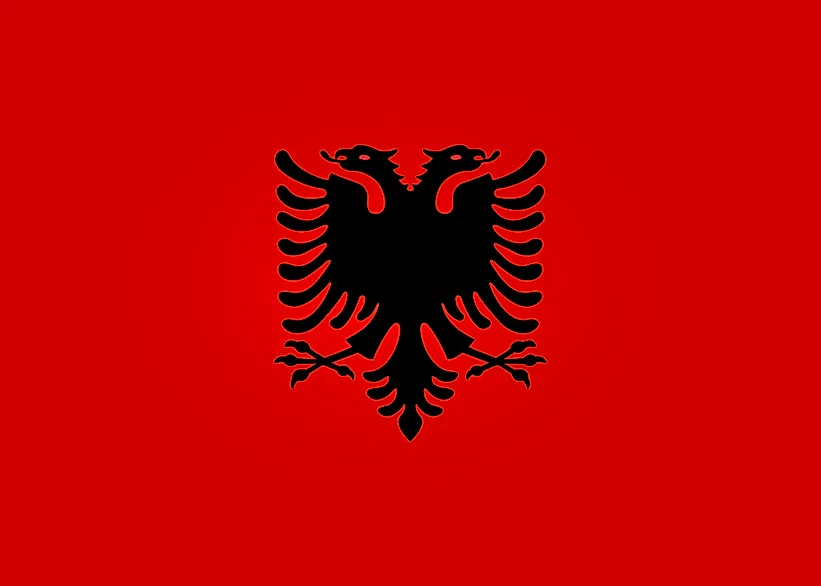
Albania
| Continent | Europe |
| Capital | Tirana |
| Population | 3,038,594 |
| GDP | $33.90 Billion |
| GDP per Capita | $11,900 |
| Dialing Code | +355 |
| ISO Code (2-letter) | AL |
| ISO Code (3-letter) | ALB |
Albania Landscapes






About Albania
Welcome to Albania, a captivating Balkan nation where ancient traditions meet Mediterranean charm. This small but dynamic country, with its population of 2.8 million people, offers a unique blend of stunning coastlines, mountain ranges, and historical sites that span millennia. Located in southeastern Europe, Albania has emerged from isolation to become one of Europe’s most intriguing destinations, boasting a rich cultural heritage and remarkable natural beauty.
Geographic Features and Natural Beauty
Albania’s geography is a testament to nature’s artistic prowess, featuring an incredible variety of landscapes within its 28,748 square kilometers. The Albanian Alps in the north, locally known as the “Accursed Mountains,” present some of Europe’s most dramatic mountain scenery, with jagged peaks rising majestically above pristine valleys.
The country’s 362-kilometer coastline along the Adriatic and Ionian seas is a paradise of turquoise waters and pristine beaches. The Albanian Riviera, stretching from Vlora to Saranda, showcases some of the Mediterranean’s most unspoiled coastline, with crystal-clear waters and hidden coves waiting to be discovered.
Inland, the country features diverse ecosystems, from dense forests and rolling hills to fertile plains and pristine lakes. The Butrint National Park, a UNESCO World Heritage site, combines natural beauty with ancient ruins, creating a unique landscape where history and nature intertwine.
Cultural Heritage and Traditions
Albanian culture is a fascinating mosaic of influences from various civilizations that have crossed this land throughout history. The country’s unique traditions have been preserved through centuries of isolation and resistance, creating a distinct cultural identity that sets Albania apart from its neighbors.
One of the most intriguing aspects of Albanian culture is the concept of “Besa,” a code of honor that emphasizes hospitality, loyalty, and moral behavior. This ancient tradition continues to influence modern Albanian society, making the country renowned for its exceptional hospitality and warmth toward visitors.
Traditional Albanian music, featuring distinctive polyphonic singing and instruments like the lahuta and çiftelia, has been recognized by UNESCO as part of the world’s intangible cultural heritage. The country’s traditional costumes, crafts, and folklore reflect its rich cultural tapestry.
Historical Journey
Albania’s history is a compelling narrative of resilience and determination. From ancient Illyrian tribes to Greek colonies, from Roman rule to Ottoman dominion, each era has left its mark on the country’s cultural landscape. The country has been home to various civilizations, each contributing to its rich heritage.
Archaeological sites like Butrint, Apollonia, and Byllis showcase the country’s ancient Greek and Roman heritage. Medieval castles and churches dot the landscape, while Ottoman-era mosques and bazaars reflect the country’s Islamic influences. The unique blend of these historical elements creates a fascinating cultural mosaic.
Modern Economic Landscape
Today’s Albania is experiencing significant economic transformation. The country has made remarkable progress since transitioning from isolation to a market economy in the 1990s. Tourism has emerged as a major economic driver, with the country’s natural beauty and cultural heritage attracting increasing numbers of visitors.
Agriculture remains important, with the country known for its organic produce and olive oil production. The service sector is growing rapidly, and Albania is developing its digital infrastructure to become a regional hub for technology and innovation.
International Relations and Global Position
Albania has become an increasingly active player in international affairs. As a NATO member since 2009 and a candidate for European Union membership, the country is strengthening its ties with Western allies while maintaining good relations with its Balkan neighbors.
Did You Know?
• Albania was the first officially atheist state in the world during its communist period, but today it’s known for its remarkable religious harmony and coexistence?
• The country has over 360 species of birds and is home to the rare Albanian lynx?
• Mother Teresa, although born in Skopje, was of Albanian ethnicity, and her parents were from Albania?
• The country has more bunkers per capita than any other nation, with over 173,000 concrete bunkers built during the communist era?
Conclusion
Albania represents a unique blend of Mediterranean charm, Balkan spirit, and European aspirations. Its journey from isolation to becoming an emerging European destination showcases the resilience and determination of its people. With its stunning landscapes, rich history, and warm hospitality, Albania continues to surprise and enchant visitors, making it one of Europe’s most rewarding discoveries.